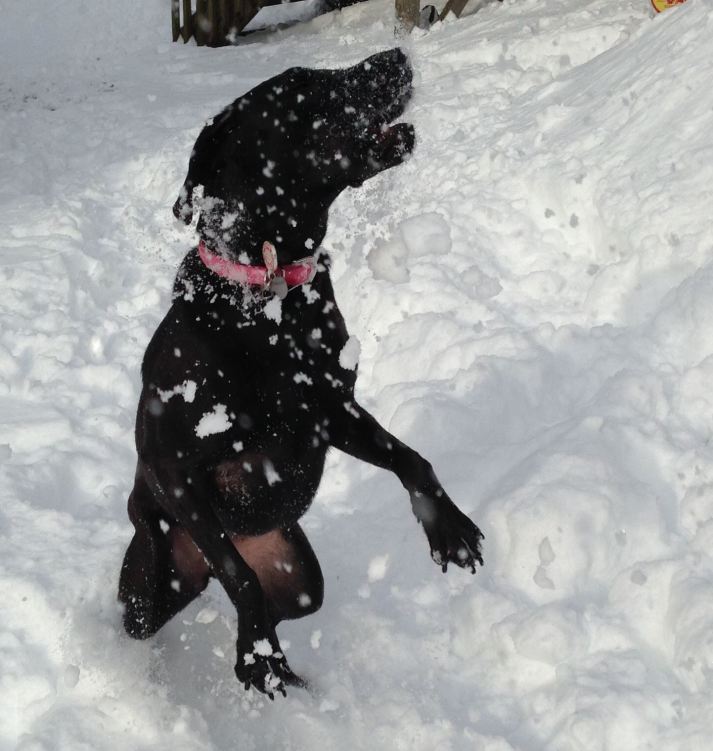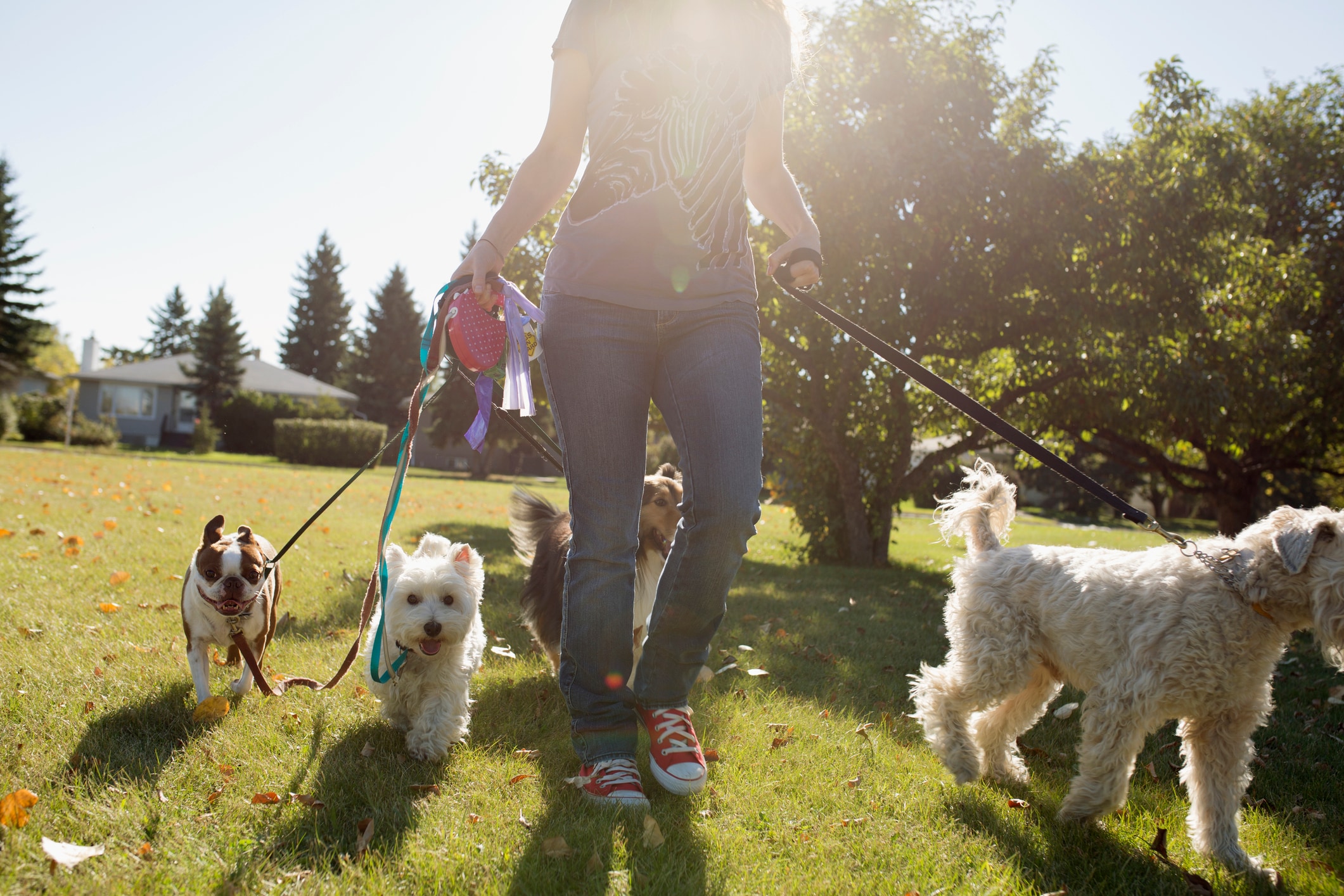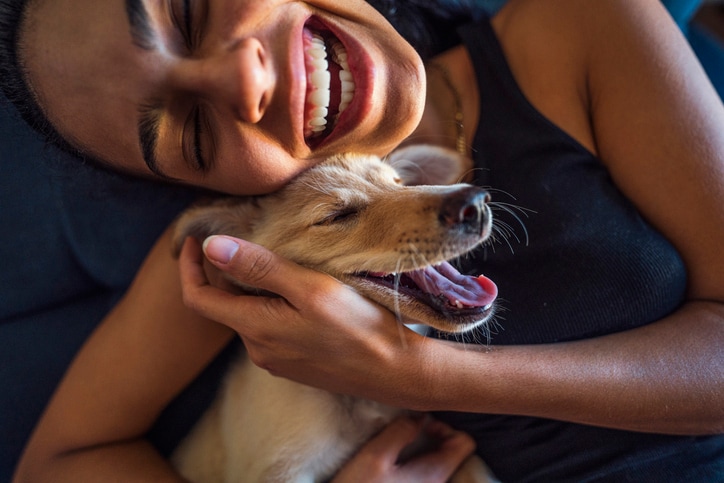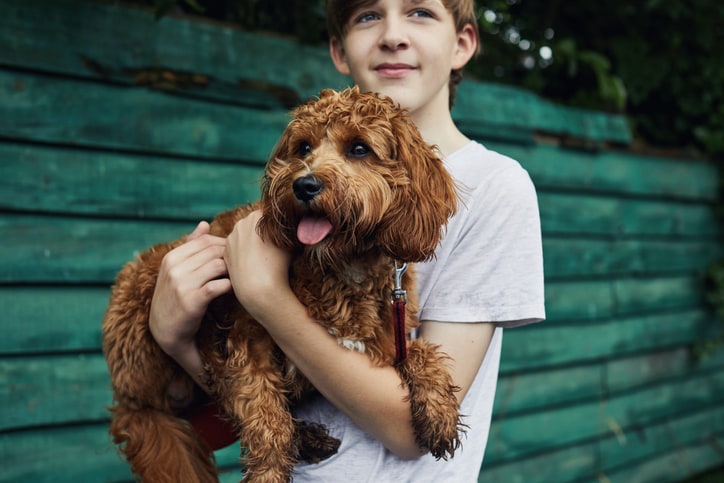Snow and cold weather affect dogs as much as humans, so I thought I’d catch up with Urban Dog’s resident veterinary expert, Doctor Christina Moore, to talk about cold weather pet care.
Sean Sheer: When I think of cold weather pet care, the first thing I think of is outer wear. Should dogs wear coats in cold weather? They have fur, so aren’t they okay going outside in winter?
Dr. Christina Moore: It’s dependent on the breed. Dogs with thick undercoats like Huskies, Malamutes, or Akitas may not need winter coats, but dogs with thinner, shorter coats do. I like to think about it this way: if I am taking the dog for a ten to fifteen minute walk and I need more than a light jacket, then the dog needs a coat as well. My dog has a short coat. Other dogs with short coats like Frankie, like your Weimaraner, or Jack Russells, Chihuahuas, Pit Bulls, or Bostons are likely to need an extra layer when it’s cold out. And not a layer for fashion, a layer to keep them warm.

Sean Sheer: What are signs that your dog is not doing well in cold weather? I’ve never actually seen our dog shiver in winter. Do dogs suffer from hypothermia or anything like that?
Dr. Moore: Some dogs may shiver, others may not. Frankie starts to shiver if he stops walking in cold weather, he’s really sensitive to the cold. But your dog, Bodhi, may not shiver because he’s very active outside, so it may not become apparent right away that he’s getting cold. Either way it’s a good idea for your dog to wear a coat if they’re going to be outside for more than ten or fifteen minutes.
Dogs can suffer from hypothermia, but it takes quite a bit to get them down to that temperature, so they’d need to be outside for a good bit of time. But it’s definitely important to not leave your dog unattended outside in cold weather. And while a coat can protect a dog’s core from getting too cold, their ears, paws, and tail can definitely suffer from frostbite. So, again, it’s very important to not leave them unattended outside when it’s cold.
Sean Sheer: Bodhi sometimes licks his feet when he comes in from the cold. What are the dangers of walking on sidewalks for dogs in winter time? How can you protect your dog’s feet? What are the best products?
Dr. Moore: Their feet are not only sensitive to having snow packed between their toes, which can be cold and painful for them, but on streets the real danger is from the salt and chemicals that are used for de-icing the streets. They can cause burns on their feet. You’ll see booties on dogs providing protection, but many dogs like Frankie hate the booties, so some of the options you can use if your dog won’t tolerate booties are paw balms and waxes. One that seems pretty good is Musher’s Secret Wax dog paw wax. You put it on the paw pads and in between the toes and it creates a protective barrier and it feels a little more natural because the dog is not wearing boots. There are also some pet friendly de-icers that you can talk to your landlord or super about using. One is called Safe Paw Ice Melter, which is not only safe for your dog’s paws, but for plants and the environment as well.
Sean Sheer: When you worked in an Emergency Room at our local 24-hour veterinary clinics, did you ever see anything particularly notable regarding cold weather problems?
Dr. Moore: One event we saw in the emergency room that was the most shocking was a dog that bit into a string of Christmas tree lights. We found burns on her tongue, but what she was brought in for was a huge burn on her abdomen that was causing her pain. She was treated for weeks and ended up doing well. But it was really interesting because it wasn’t the normal presentation and we had to do a lot of detective work to figure out what she had done to cause this wound. We worried that she had nuzzled up to a heater because dogs will do that in the winter. We feared she’d done that and fallen asleep and burned herself. So that’s something you need to keep in mind in winter time. You need to make sure your dog has a nice, warm spot so they won’t be tempted to get close to heaters.
Sean Sheer: Our dog Bodhi LOVES to eat snow! Is that okay?
Dr. Moore: The official answer is that it’s not good to eat snow because of the chemicals, but if it’s fresh snow on a lawn or something like that, that’s far away from city sidewalks, then it’s okay. But keep in mind it is not a substitute for water, and dogs can get dehydrated in winter just as easily as in the summer. So make sure they have access to plenty of drinking water.
Dr. Moore also mentioned that you should be really careful about keeping your dog from licking anti-freeze on city streets. It’s very sweet and very toxic. It’s easily recognized by its bright yellow-green color.
For more, check out the American Veterinary Medical Association’s cold weather pet care safety tips.





